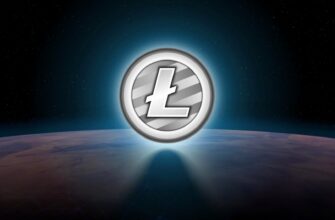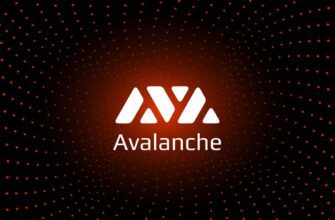- What is Bitcoin Cash (BCH)? Pros and Cons Explained
- What is Bitcoin Cash?
- Key Features of Bitcoin Cash
- Pros of Bitcoin Cash
- 1. Scalability
- 2. Lower Fees
- 3. Quick Transfers
- 4. Wider Adoption for Payments
- 5. Active Community and Development
- Cons of Bitcoin Cash
- 1. Security Trade-offs
- 2. Lower Hashrate than Bitcoin
- 3. Brand Confusion
- 4. Limited Developer Base
- 5. Volatility
- Conclusion
What is Bitcoin Cash (BCH)? Pros and Cons Explained
Bitcoin Cash (BCH) is a popular cryptocurrency that was created as a fork of Bitcoin (BTC) to offer faster transactions and lower fees. Since its launch, BCH has carved out its own path in the crypto ecosystem, attracting users and businesses looking for efficient peer-to-peer payments. But what exactly is Bitcoin Cash, and what are its advantages and disadvantages?
What is Bitcoin Cash?
Bitcoin Cash is a decentralized digital currency that emerged in August 2017 as a result of a hard fork from Bitcoin. The primary reason behind the split was disagreement within the Bitcoin community about how to scale the network. Bitcoin Cash increased the block size limit, allowing more transactions to be processed in each block.
While it shares many technical similarities with Bitcoin, BCH was designed to be more usable for daily transactions. It positions itself as “electronic cash” — a vision originally outlined by Satoshi Nakamoto in the Bitcoin whitepaper.
Key Features of Bitcoin Cash
- Larger Block Size: BCH blocks are significantly larger than BTC blocks, enabling higher transaction throughput.
- Faster Confirmations: With more room in each block, BCH transactions are confirmed more quickly during periods of high network activity.
- Lower Transaction Fees: Bitcoin Cash offers low-cost transfers, making it attractive for microtransactions and international payments.
- Decentralization and Transparency: Like Bitcoin, BCH is open-source and runs on a decentralized network of nodes.
Pros of Bitcoin Cash
1. Scalability
One of the biggest advantages of Bitcoin Cash is its ability to handle more transactions per second compared to Bitcoin. This makes BCH a more scalable solution for real-world use.
2. Lower Fees
Because of its larger block size, BCH can process more transactions at once, reducing congestion and keeping fees low.
3. Quick Transfers
Bitcoin Cash is often used for peer-to-peer payments due to its quick confirmation times, especially when network traffic is high.
4. Wider Adoption for Payments
Many merchants and payment platforms accept BCH, giving it practical use cases beyond trading.
5. Active Community and Development
Bitcoin Cash has a strong development team and an active community that continues to support innovations and upgrades to the network.
Cons of Bitcoin Cash
1. Security Trade-offs
Some critics argue that increasing the block size can lead to more centralization, as fewer nodes can afford the storage and bandwidth needed to run a full node.
2. Lower Hashrate than Bitcoin
BCH has a lower mining hashrate compared to Bitcoin, which could make it more susceptible to attacks like the 51% attack.
3. Brand Confusion
Because it shares a similar name with Bitcoin, many newcomers to crypto may confuse Bitcoin Cash with Bitcoin, leading to misinformation or investment mistakes.
4. Limited Developer Base
While there is ongoing development, Bitcoin Cash doesn’t have as large a developer ecosystem as Bitcoin or Ethereum.
5. Volatility
Like most cryptocurrencies, BCH is subject to price volatility, which may deter some users from adopting it as a daily currency.
Conclusion
Bitcoin Cash (BCH) is a fast, low-cost cryptocurrency designed for peer-to-peer electronic payments. With its larger block size and lower fees, it aims to solve some of Bitcoin’s limitations, making it suitable for day-to-day transactions. However, it also faces challenges such as lower security compared to Bitcoin and limited mainstream adoption.
Whether you’re a crypto investor or just starting out, understanding the pros and cons of Bitcoin Cash is essential before using or investing in the coin. As the blockchain space continues to evolve, BCH remains an important part of the conversation around scalable and efficient digital currencies.








